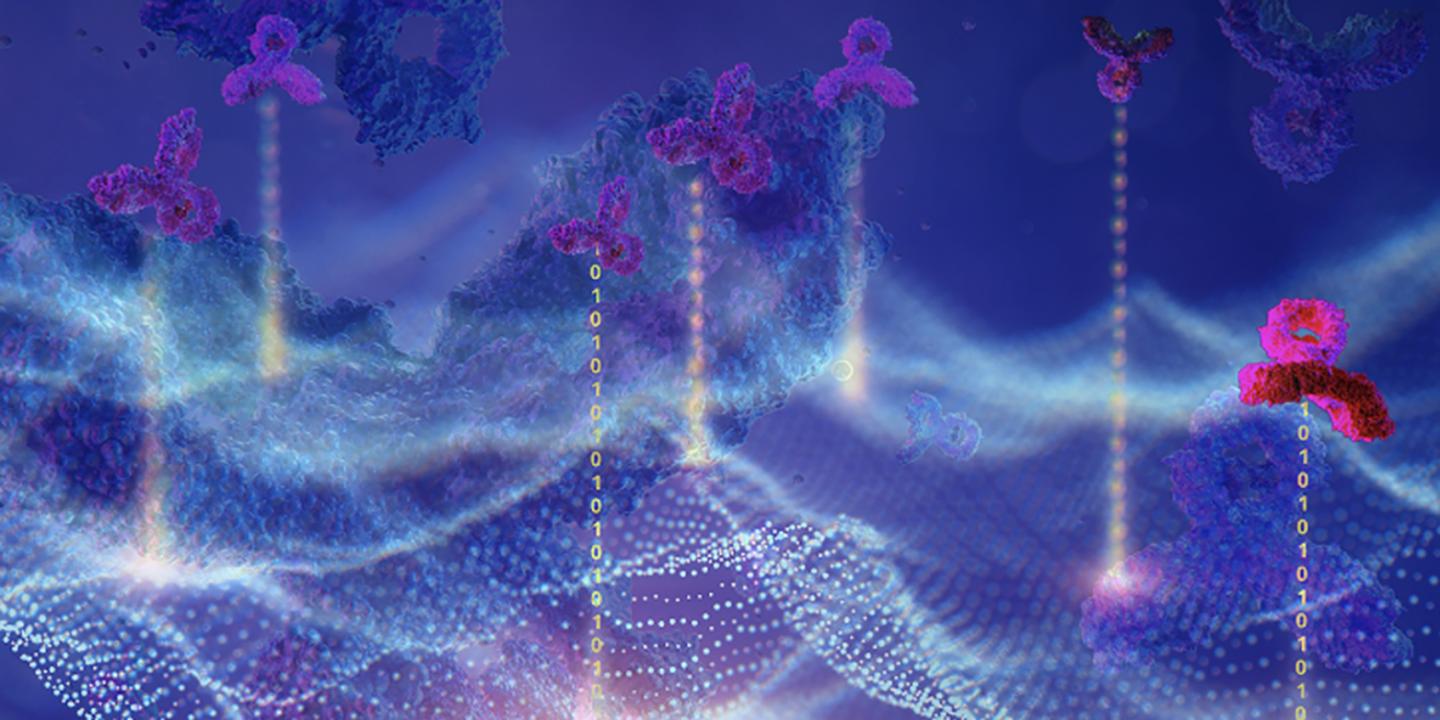
The development and optimization of therapeutic antibodies is challenging. Once an antibody is identified that binds to the appropriate antigen, it undergoes an optimization process that is both time-intensive and resource-demanding. Now, researchers have developed a machine learning method that supports this optimization phase, helping to develop more effective antibody drugs.
This work is published in Nature Biomedical Engineering in the article, “Optimization of therapeutic antibodies by predicting antigen specificity from antibody sequence via deep learning.”
The researchers show that optimized antibody variants can be identified by predicting antigen specificity via deep learning from a massively diverse space of antibody sequences.
“With automated processes, you can test a few thousand therapeutic candidates in a lab. But it is not really feasible to screen any more than that,” noted Sai Reddy, PhD, professor at the department of biosystems science and engineering at ETH Zurich in Basel. Typically, the best dozen antibodies from this screening move on to the next step and are tested for how well they meet additional criteria. “Ultimately, this approach lets you identify the best antibody from a group of a few thousand,” he said.
Reddy and his colleagues used machine learning to increase the initial set of antibodies to be tested to several million. “The more candidates there are to choose from, the greater the chance of finding one that really meets all the criteria needed for drug development,” Reddy said.
The ETH researchers provided the proof of concept for their new method using Roche’s antibody cancer drug Herceptin, which has been on the market for 20 years. “But we weren’t looking to make suggestions for how to improve it—you can’t just retroactively change an approved drug,” Reddy explained. “Our reason for choosing this antibody is because it is well known in the scientific community and because its structure is published in open-access databases.”
Starting out from the DNA sequence of the Herceptin antibody, the ETH researchers created about 40,000 related antibodies using site-directed mutagenesis via CRISPR–Cas9-mediated homology-directed repair. Experiments showed that 10,000 antibodies bound well to the target protein. The scientists used the DNA sequences of these 40,000 antibodies to train a machine learning algorithm.
The researchers applied the trained algorithm to search a database of 70 million potential antibody DNA sequences. For these 70 million candidates, the algorithm predicted how well the corresponding antibodies would bind to the target protein, resulting in a list of millions of sequences expected to bind.
Using further computer models, the scientists predicted how well these millions of sequences would meet the additional criteria for drug development (tolerance, production, physical properties). This reduced the number of candidate sequences to 8,000.
From the list of optimized candidate sequences on their computer, the scientists selected 55 sequences from which to produce antibodies in the lab and characterize their properties. Subsequent experiments showed that several of them bound even better to the target protein than Herceptin itself, as well as being easier to produce and more stable than Herceptin. “One new variant may even be better tolerated in the body than Herceptin,” said Reddy. “It is known that Herceptin triggers a weak immune response, but this is typically not a problem in this case.” However, it is a problem for many other antibodies and is necessary to prevent for drug development.
The ETH scientists are now applying their artificial intelligence method to optimize antibody drugs that are in clinical development. To this end, they recently founded the ETH spin-off deepCDR Biologics, which partners with both early-stage and established biotech and pharmaceutical companies for antibody drug development.
"machine" - Google News
April 16, 2021 at 03:00PM
https://ift.tt/3tBG617
Machine Learning Helps Optimize Therapeutic Antibodies - Genetic Engineering & Biotechnology News
"machine" - Google News
https://ift.tt/2VUJ7uS
https://ift.tt/2SvsFPt
Bagikan Berita Ini














0 Response to "Machine Learning Helps Optimize Therapeutic Antibodies - Genetic Engineering & Biotechnology News"
Post a Comment